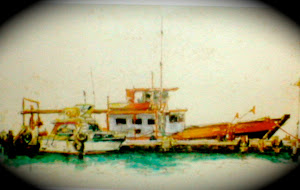Starting with why Public domains are never as desirable as Private ones. Public vs. Private, it has been a feud the rich will always triumph over; parks, homes, golf courses, clubs, schools, are all supposedly better when privately managed, at the least they are more expensive. Why is it that across the board private, controlled territories have more value? Is it the input – is it the quality? And if so, why is that? With anything educational, if it’s privately owned, and funded – it lends to a higher caliber. Its standards will be excellent; the rules will be strict and well-enforced. We have come to expect the nature of private controlled groups of power as worthy of our time and dedication. So, why don’t publicly owned and operated groups nearly capture the respect and regard for their output? Money! Coin my friends, capital, cash, dinero. Income must be generated - and at great levels. A collection of taxes can never, or has yet to, amount to the needs of all who preside in the public domain. Public service workers, though mostly dedicated, don’t get the big bucks to work for the people so, the problem will not be solved by them anytime soon.
I will not address the issue of power today, that 'human-failing' is big enough on its own. What I will discuss is, in most societies, respect walks with worth, always has, always will.
There is also a saying: “You get what you pay for.” Though it’s not really about receiving quality product for the dollar paid, where I'm coming from is about an appreciation and regard of the thing rendered. ~ It’s an attitude people!
My father paid me very-well for babysitting – at the time I didn’t know or care why. When it came time in my life for a good 10-speed, I had the money to pay for it. “You don’t expect me to use my money!” says I. “If you buy it yourself, you’ll appreciate it more,” says he. When something is free we tend to value it less. Its worth lacks a bit even though someone else paid greatly for it. You pay - the joy is yours. You own it.
I would like to see the day when we move away from actual paper currency altogether – it’s one of the two organized entities that breed greed and hypocrisy. (But we are far from that day right now.) I’ve always admired the philosophy in Gene Rodenberry’s world: - personal growth and achievement constituted the value in a person. The need for payment of labor was a fine idea, and necessary for markets and communities to grow and prosper.
Industries like the entertainment business are having a particular go-of-it. Music, beat-making, movies, gaming ideas, are all being ransacked out of millions in lost revenue. Dollars are not going back into the pockets of the artist who labored over their work. What is the solution for requiting costs of equipment, talent, energy and the time it took away from an artist’s life to create their work? Entertainment is a Business, and, the business mind runs over the playful artistic spirit with a coldly detached force; though both groups may be genius in their fields, with the very nature of each, the ruthless one lays obvious doom to the more free and flexible one. Yet one could not survive without the other. They are unmistakably symbiotic. Their relationship is beneficial in that – great organization is needed to harvest the benefits of great aesthetic works. The business end, shrewd and clever, leaves the art up to the artist to muse and inspire.
What we are currently lacking is a system that shares the credit and success. Goods and services are what I’ve been pondering in the above paragraphs. Having access to the use of a product as a resource, however, is a canyon of a gray area. Taking copyrighted material and reworking it as your own, adds still more complications to this new wrench-in-the-works called: P2P, (peer-to-peer) a popular and contagious file-sharing process. This is an activity that makes files from one computer available to other users on the Internet. The computer data is then shared with other networks. One way to ‘get a handle’ on what goes out and who’s involved, is to have different levels of access privileges to different clients. Hey, “New Rule!”
Free exchange of information and musical product is the philosophy of youth. Some say it’s all in the marketing – a direction I will always concur. (People weren’t starting fights over the shortage of new VW Bugs or PT Cruisers - that was some ad guy’s bright little campaign idea.)
As far as ideas for fixing the file-sharing piracy issue:
* Keep and demand superior quality. - Bootlegs are facts of life; they have their place but are far from running the world.
* Live and let live. - Follow the document. Compile the data. Create a company to keep the ‘other’ guy honest.
* If you can’t beat ‘em, join ‘em. - It is said that this activity stimulated social interest in music, a positive action; this effect generates more, not less, fans.
* Encrypt the material; what ever happened to copy-guard?
* Sample Material: Former employers of mine would cut holes in apparel products, so associates would not take them home or profit from the retail they displayed.
My guess is a Private Company, ‘L&CFSA’ will legalize it, legitimize it, market it and sell it.
It will have amazing data collection software, a vast document library, high quality, friendly customer service and guaranteed satisfaction - all in an affordable little package.
There will always be a variety of both private and public institutions. It’s part of the balance. This too will work itself out, time will pass, and, the next phase of exciting problems will originate out of the ever evolving Internet.
Also, an interesting and informative blog spot on this topic:
Shuman's.com





